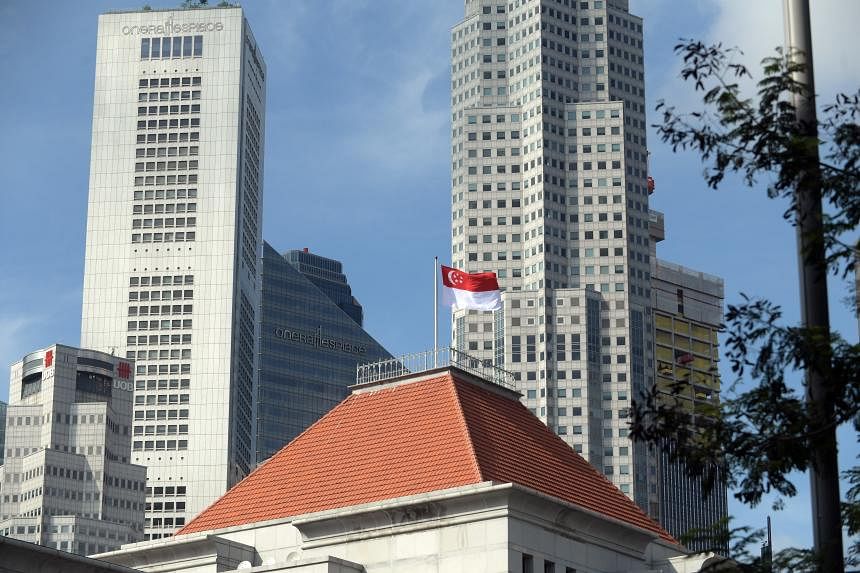SINGAPORE - There are 413 companies with more than $500 million in shareholders’ equity. About two in five, or 165, of these have chief executives or managing directors who are Singapore citizens.
Deputy Prime Minister and Finance Minister Lawrence Wong revealed these figures in response to a question from Non-Constituency MP Leong Mun Wai on Tuesday.
These figures are for companies that have filed chief executive or managing director information with the Accounting and Corporate Regulatory Authority (Acra).
In a written parliamentary question, the Progress Singapore Party secretary-general asked, as at Dec 31, 2022, how many companies registered with Acra with more than $500 million in shareholders’ equity have chief executives who are Singapore citizens.
Under the private-sector requirement for presidential hopefuls, a person must have served as chief executive of a company for at least three years, during which time the company must, on average, have at least $500 million in shareholders’ equity and made a profit after tax throughout.
The Presidential Elections Committee must also be satisfied that the person has the experience and ability to effectively carry out the functions and duties of the office of the president.
For those seeking to qualify from the public sector, the requirement includes having held office as a minister, chief justice, Speaker of Parliament, attorney-general, chairman of the Public Service Commission, auditor-general, accountant-general or permanent secretary for at least three years.
In a separate reply on Tuesday, Education Minister Chan Chun Sing said that it is inappropriate to compare or impose the same requirements for both the private and the public sectors.
He was responding on behalf of Prime Minister Lee Hsien Loong in response to Workers’ Party MP Jamus Lim (Sengkang GRC) on why the criteria for a private-sector candidate measures the profitability of the individual’s company, while public-sector requirements do not include a criterion to measure successful leadership.
Mr Chan said: “While the private- and public-sector service requirement tracks are both aimed at identifying candidates with the necessary skills and experience for the office of the president, the nature of the work in the private and public sectors is different.”
The eligibility criteria to contest a presidential election was amended in 2017 after a 2016 report from the Constitutional Commission, which made recommendations on aspects of the elected presidency, including the eligibility criteria.
While the commission did consider whether performance criteria should be included as an additional factor for consideration for the public-sector service track, it did not recommend doing so, said Mr Chan.
The commission proposed a performance criterion for private-sector candidates, but was of the view that there were no measurable standards against which the performance of public-sector candidates may be assessed, he added.
“This is unlike the private-sector service requirement, where there are financial performance indicators, such as profitability, that can serve as an objective assessment of how the applicants have performed in the companies with them at the helm,” said Mr Chan.
The commission had acknowledged that the performance of public-sector organisations can be measured to some extent, such as by looking at how well the organisation performed in meeting its own targets.
But these performance indicators were likely to be representative of only a part of the organisation’s work, Mr Chan said.
They may not reflect the success of the policies implemented by these public-sector organisations, which sometimes take a significant amount of time to bear fruit.
Mr Chan said the commission also believed that the list of qualifying public-sector offices was “tightly drawn”, and would have provided candidates with the experience of leading “substantial organisations with sizeable workforces”.
They would have dealt with “complex matters having a wide-reaching public dimension”, and grappled with “the contrary pulls and pressures of government decision-making”, he said.
Correction note: This article has been edited for clarity.


